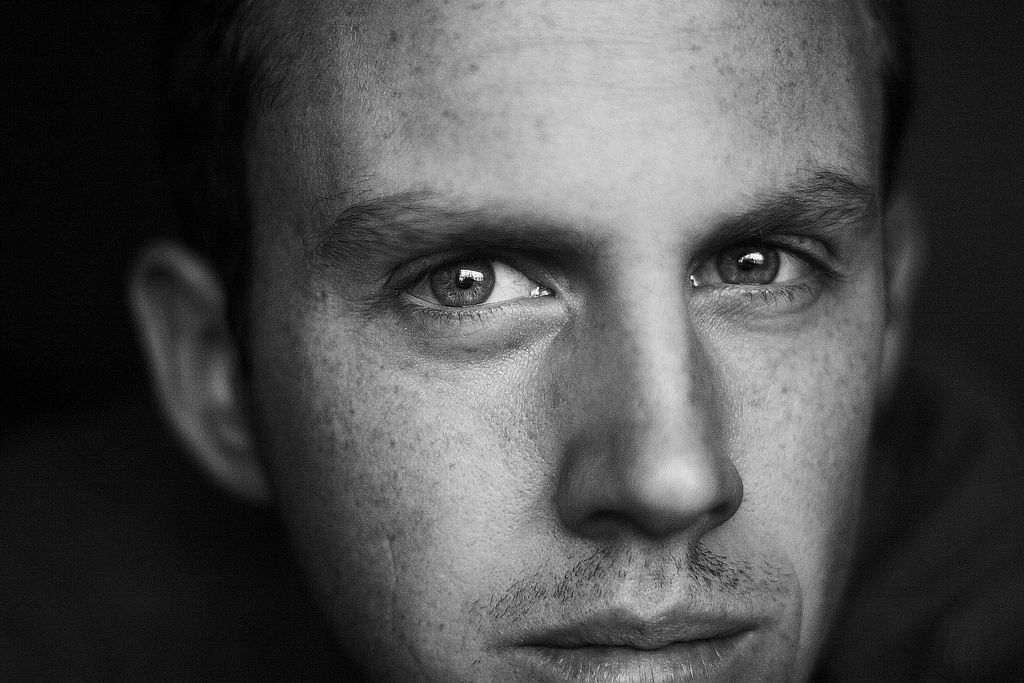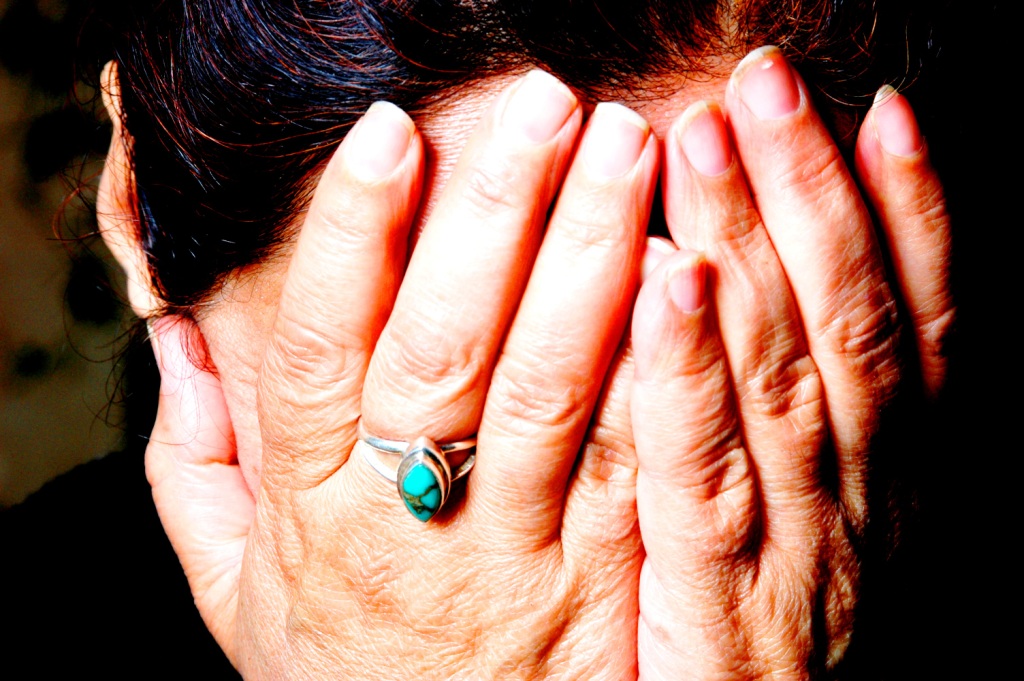When adversity strikes, how much do we really take responsibility for where we are and how we can change things?
How often do we actually – consciously – ask ourselves, “What can I do about it?”
Life took a definitely unexpected turn for me (and it seemed, a disastrous one) in 2004 when I was hit by an old foe – an illness called M.E. or Chronic Fatigue Syndrome. I’d had spells of it before. I’d been wiped out by colds and suchlike more times than I could remember, once for six months.
This time I knew straight away it was worse. I could barely get to the bathroom from my bed without collapsing from exhaustion. Still, I thought, maybe it won’t hang around for too long.
I had no idea that it would take four years before I would finally feel fully better.
In the meantime it caused my family and me huge problems. You see, just 18 months before, I’d decided to have my turn at being the full-time parent. My wife had been at home for four years from our two girls being born and she wanted to re-train to be a teacher. “I quite fancy being the stay-at-home dad” I thought. So, from autumn of 2002 I was a house-husband, home-maker, “chief cook and bottle washer”, as the saying goes.
Eighteen months later? Well, at least we didn’t lose an income when I became ill. We did however lose the main carer for our children and, under limited financial circumstances, we had to find a way of meeting their young needs. It wasn’t an easy time as you can imagine. It was very stressful for my wife who had just started a new career and felt pulled two ways even more than most working mothers do.
In the meantime, I was refusing to give in to the illness and was making matters worse in the process by pushing myself to carry on being the full-time dad.
I eventually got to the stage where I could barely sit up straight it was so exhausting. The CFS had got the better of me and I became bed-bound.
Too exhausted to even listen to the radio or read a book, all I could do was stare out of the window and watch the clouds go by. I cried buckets as I realised how far I’d fallen.
It was at this, my lowest point, that I had an epiphany. Fed up with feeling sorry for myself, I stopped crying and asked myself the question which has defined my life ever since: “What can I do about it?”
Straight away I felt I was taking a little bit more control of my circumstances. I reached for a pen and paper and wrote down (even that was a tough task) all the things I could do which might help me. Some months later one of those items on my list eventually led me to getting a place on a treatment programme. That programme has since enabled me to manage my illness in an effective way, so much so that I can now have spells of full health.
For four years I was relatively okay with only a couple of relapses. Since 2012, I have been affected again. While never hitting the depths of the first long-spell of illness, it has once again had an impact on my life (I have been unable to pursue my passion for coaching since qualifying as a Personal Performance Coach in 2011) and on my family. Fortunately, I am now probably 85% better and can do most things such as run the household, cook meals and do some gardening. It has once again been a long-haul and I have missed out on some things – I would have loved to go to the Olympics in London for example – but I have been there for my children even though we haven’t always been able to do some of the things other families can do.
But I have also been able to re-frame my illness as a great opportunity. I have been able to build a stronger relationship with my wife – a relationship which I had damaged during the first period of illness. My bond with my two daughters is one that many people can only dream of thanks to all the time I have been able to spend with them, listening to them, guiding them and reminding them of their boundaries.
I’ve moved from accepting my illness to really embracing it for the opportunities with which it has provided me and the change it has brought into my life. Lately, I have also been grateful for it finally leading me to meditate. I have tried so often in the past to practise meditation but for the first time now, perhaps out of necessity, I feel I am making it a part of my life. I hope I will be a calmer person as a result.
But how did Stephen Covey help me to get here? Possibly the biggest impact on my life has been the first of The 7 Habits of Highly Effective People. Those of you who have read it will know that habit is “Be Proactive”. More than just taking initiative, this habit is about choice: choosing your response to any event and taking responsibility for what happens to you. At one time, I may have chosen to respond to my illness in terms of how unfair life is, felt sorry for myself and surrendered to the power of these negative feelings. Thanks to the impact of Stephen Covey’s Seven Habits, I was able to choose a different response and I will be forever be grateful to him for his book.
I hope I can continue to live my life according to the motto of Fergus Wilkes in the film Greenfingers, “Make an ally of adversity and a friend of misfortune”. If I do that, life can really bloom.
How Asking Yourself “What Can I Do About It?” Can Help You
- You will feel more in control of your life and less at the mercy of life’s events.
- Your relationships will improve as you take more responsibility for their quality.
- Your life will improve immeasurably when you add up all the small, positive choices you have made.
- Your self-esteem and confidence will also improve as you begin to see the difference you can make in so many areas of your life.
- In situations where you feel overwhelmed, asking yourself this question will reduce anxiety and leave you feeling calmer.
- You will find yourself blaming and complaining less.
- If you feel that your life is dominated by how other people treat you, a good response to “What can I do about it?” is that you will choose your emotions from now on and not allow other people to have power over how you feel.
Here’s a challenge. How often can you ask yourself “What can I do about it?” in the next week? See the difference it can make to how you respond to life’s events, large and small. You may be surprised at the control you take back over your own life.
Photo by trent roche






Apricot Kernels(the inner hulled nut of the apricot) do wonders for Chronic Fatigue Syndrome…
Thanks for the tip Sari, I’ll check it out.
Your journey into awareness and empowerment challenges us not to become victims of our circumstances. Thank you for sharing and reminding us how Dr. Covey’s book can help us transcend the emptiness, disconnect and pain of personal illness and rethink what is possible and probably.
Thanks for commenting Richard.It’s very easy to feel like a victim of events. Taking positive steps for one’s future is the way to avoid that, I quite agree.
Oh, Pete–I SO understand this. I’ve had the “opportunity” to live with this illness for 20 years now, and it can indeed be challenging. And I’d echo that you have to get to the place you did, before you can start healing. This encapsulates it: “I’ve moved from accepting my illness to really embracing it for the opportunities with which it has provided me and the change it has brought into my life.”
From there, you began to heal.
Thank you for such honesty and hope!
Thanks you for your kind and supportive words Susan, they mean a lot to me. It’s not an easy road we travel but there are genuine plus points about it. It’s just a case of remembering them on bad days.
I’m a firm believer that adversities happen to make us better. But we can only see this truth when we summon up the courage to look beyond our pain, self pity and shallow perceptions. This is what you’ve done successfully and it’s really admirable. Thanks for Sharing.
Thanks for your support Jamila and thanks for commenting.
Hey Pete,
I am really inspired by your Blog. am presently going through a lot of challenges in my life and always struggled with Unwanted thoughts and feelings which made me feel like a victim to circumstances. your clarity of writing inspired a flame in me to take charge of my own life.
I’m really glad if I’ve been able to help in a small way Jayant. Don’t forget that people will be inspired by you when you respond positively to your challenges.Sometimes it can feel like we have no place on this earth but I feel strongly that the small differences we make by being a role model are part of our life’s purpose. I wish you strength and courage my friend.If you feel that my writing would be of help to others then please share it with them.
I really enjoyed reading and thanks so much for sharing. Sending you love and light.
Olaseni